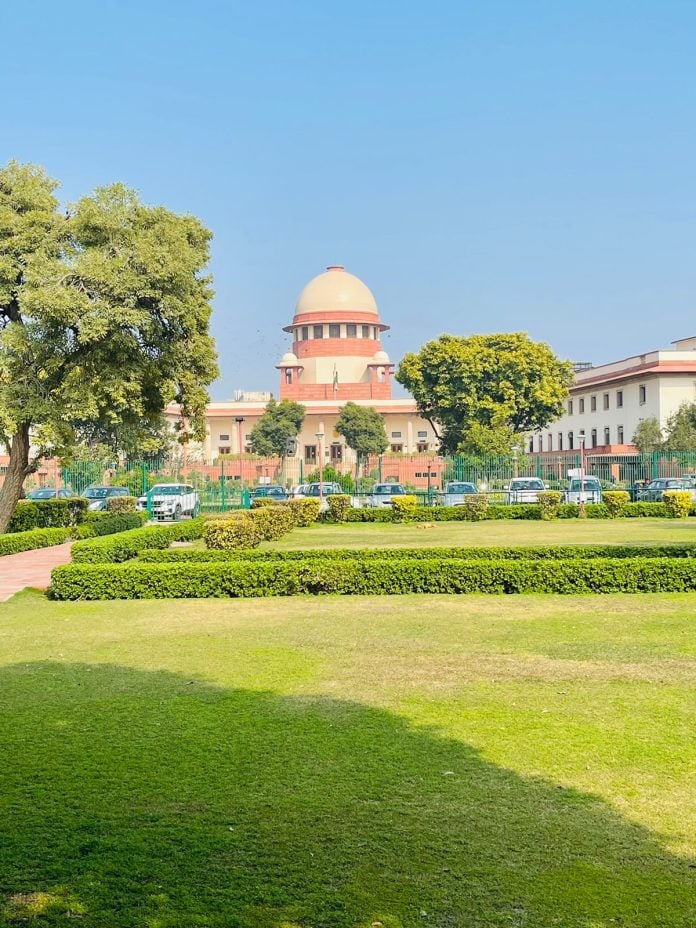The Supreme Court has commuted a death sentence into life imprisonment of a man convicted and sentenced to death for rape and murder of a seven-year-old girl.
A three-Judge Bench of Justice A.M. Khanwilkar, Justice Dinesh Maheswari and Justice C.T. Ravikumar passed the order on an appeal against the High Court order, which in turn had upheld the Sessions Court order of convicting the appellant for offences punishable under Sections 376, 302, 201 of the IPC and Section 5/6 of POCSO Act and awarded him death sentence for offence under 302 IPC.
The Supreme Court has commuted death sentence into imprisonment for life with a stipulation that he shall not be entitled to premature release or remission before undergoing actual imprisonment for a period of 30 years. The Court has upheld the conviction for offences under Sections 376, 302, 201, IPC and Section 5/6 POCSO Act.
The Top Court observed that the heinous nature of crime like that the present one, in a brutal rape and murder of a seven-year-old girl child, definitely discloses aggravating circumstances, particularly when the manner of its commission shows depravity and shocks the conscience. But, at the same time, it is noticeable that the appellant has no criminal antecedents, comes from a very poor socio-economic background, has a family comprising of wife, children and aged father and has unblemished jail conduct.
The Court said considering all above factors it cannot ruled out the probability of reformation and rehabilitation of the appellant while stating it would be unsafe to treat this case as falling in ‘rarest of rare’ category. “His unblemished jail conduct and having a family of wife, children and aged father would also indicate towards the probability of his reformation,” the Court added.
The Court said that the impugned orders of the trial court and high court for awarding and confirming death sentence could only be said to be of assumptive conclusions, where it has been assumed that death sentence has to be awarded because of the ghastly crime and its abhorrent nature. With regard to the argument raised by appellant with reference to the theory of ‘residual doubt’, the Supreme Court three-judge bench said, it need not dilate on this aspect any further in the present case for the simple reason that the strong mitigating factor of probability of reformation and rehabilitation, particularly with reference to the antecedents and background of the appellant coupled with his satisfactory jail conduct, make out a case for communing death sentence into that of imprisonment for life.
In the present case the appellant was accused of enticing a seven-year-old girl to accompany him on the pretext of picking lychee fruits; having thereafter committed rape upon the child; having caused her death; and having dumped the
body near a bridge on the riverbank, after having dragged the dead body over a distance of one and one-quarter kilometres.
The prosecution case rested on circumstantial evidence to the effect that the victim was lastly seen in the company of the appellant; that her dead body was recovered at the instance of the appellant; that the appellant had failed to satisfactorily explain his whereabouts and his knowledge of the location of dead body; and that the medical and other scientific evidence was consistent with the accusation. Per contra, the appellant alleged that he was falsely implicated due to enmity with the families of the deceased and other witnesses because of a land dispute.


